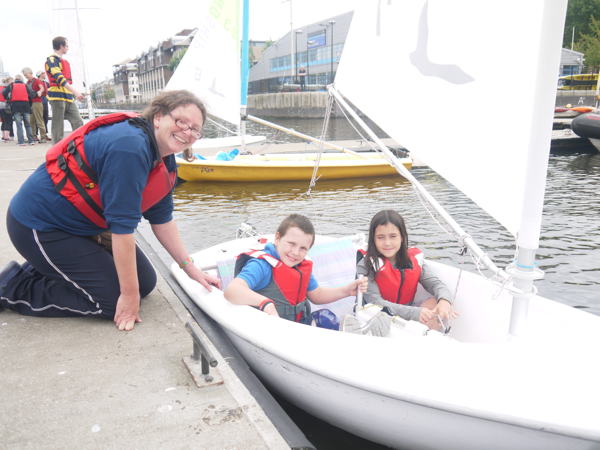Famous by-election opponents Simon Hughes MP and Peter Tatchell praised each other for achievements over three decades as they faced each other before an audience at Sands Films.
Rotherhithe & Bermondsey Local History Group staged the discussion last Wednesday to mark the 30th anniversary of the Bermondsey by-election which attracted 15 contestants. After a turbulant campaign, during which the Labour’s Peter Tatchell was briefly disowned by the party leader and then suffered serious homophobic attacks, a safe Labour seat went Liberal in the biggest by-election swing in British political history.
“I hope in the years from then I have tried to heal some of the wounds,” said Liberal winner Simon Hughes who still holds the seat. “Peter has been very generous to me over the years. I pay tribute to him again as I have done privately and publicly. I apologise to him privately and publicly for what happened. Many of the things which happened to him were completely unacceptable.”
He added: “I pay tribute above all to your human rights campaigning abroad as well as at home.” In his main address Peter Tatchell, turning to Simon Hughes, said: “I don’t personally blame him. I don’t frankly know what he knew and didn’t know. I suspect he did not know. But undoubtedly some members of the Liberal Party did pitch for the homophobic vote.”
Investigations into who or which party published the most notorious ‘Which Queen will you vote for?’ leaflet had, he said, never been conclusive.
Tatchell praised Simon Hughes for support he had received from him shortly after the election when organising the world’s first Aids and Human Rights Conference.
Student journalist Fern Tomlinson, chairing the discussion, first recalled the “turbulent” political state of Britain in the early 1980s. She recalled that the Labour Party was at a low ebb and about to lose the post Falklands general election. But first there was the historic Bermondsey by-election on 24 February 1983.
Ms Tomlinson said that the two guests were the key players but council leader John O’Grady, standing as Real Bermondsey Labour and backed by Bermondsey’s former MP Bob Mellish, was also a significant candidate. O’Grady had been considered a possible winner until the last few days when anti-Tatchell support switched to the Liberal candidate.
Simon Hughes said that he joined Bermondsey Liberal Party as member number six at the invitation of Stan Hardy who heard that the recently graduated Liberal student had not, after several letters, had a reply from Peckham Liberals. Mr Hughes was soon the failed GLC candidate for Bermondsey.
He described the local Labour Party run by O’Grady in the 1970s as an ‘Irish mafia’. Peter Tatchell recalled it as a ‘corrupt and moribund party’. Change came when he and friends managed to recruit 800 new members in one year.
“I stood on policies I still stand by today which now of course are the mainstream although at the time I was vilified as an extremist,” said Peter who listed the minimum wage, equality laws and a negotiated settlement in Ireland.
He detailed verbal attacks, street incidents and death threats which led to his home having to be boarded up. He admitted he was terrified. He had support but was refused police protection. He confessed to one of the darkest periods of this life as he suffered post traumatic stress after the contest.
He claimed that the public revulsion afterwards quickly led to gay and lesbian candidates being able to fight elections without suffering attacks.
Both ex-candidates spoke candidly when asked by today’s Bermondsey Labour Party secretary Sheila Taylor what they regretted most.
“I wish I had been brave enough to say ‘can we call a halt to personal abuse?’,” reflected Simon Hughes. “Sometimes people have to step out of their political corner.” He explained that as a young candidate he was on the campaign trail not always knowing what was happening in the HQ.
Peter Tatchell also spoke of a sense of powerlessness and wished he had been able to persuade MPs to come and help him. Labour’s stars failed to make the short journey from Westminster to join in the campaign.
The two rivals, who had operated without modern speedy communication, were asked to provide a Tweet for Thursday 24 February 1983. “My policies are motivated by love and not hate” said Peter who explained he wanted to be positive.
Simon said: “Tomorrow first vote. If you want someone to take on Mrs Thatcher and the failing Labour Council…” Both ran out of characters for their imaginary tweets but agreed that housing was a central issue in 1973 just as in 2013.
Local history group chairman Michael Daniels said: “The evening was a sell-out and had become the ‘talk of the Blue’, as well as the local pubs!
“I found it both enlightening and humbling to hear Simon and Peter give such honest and open accounts, and fascinating to witness the degree to which many of their views converge.”
The group’s next meeting is on Wednesday 27 February when the speaker will be transport writer Christian Wolmar.

